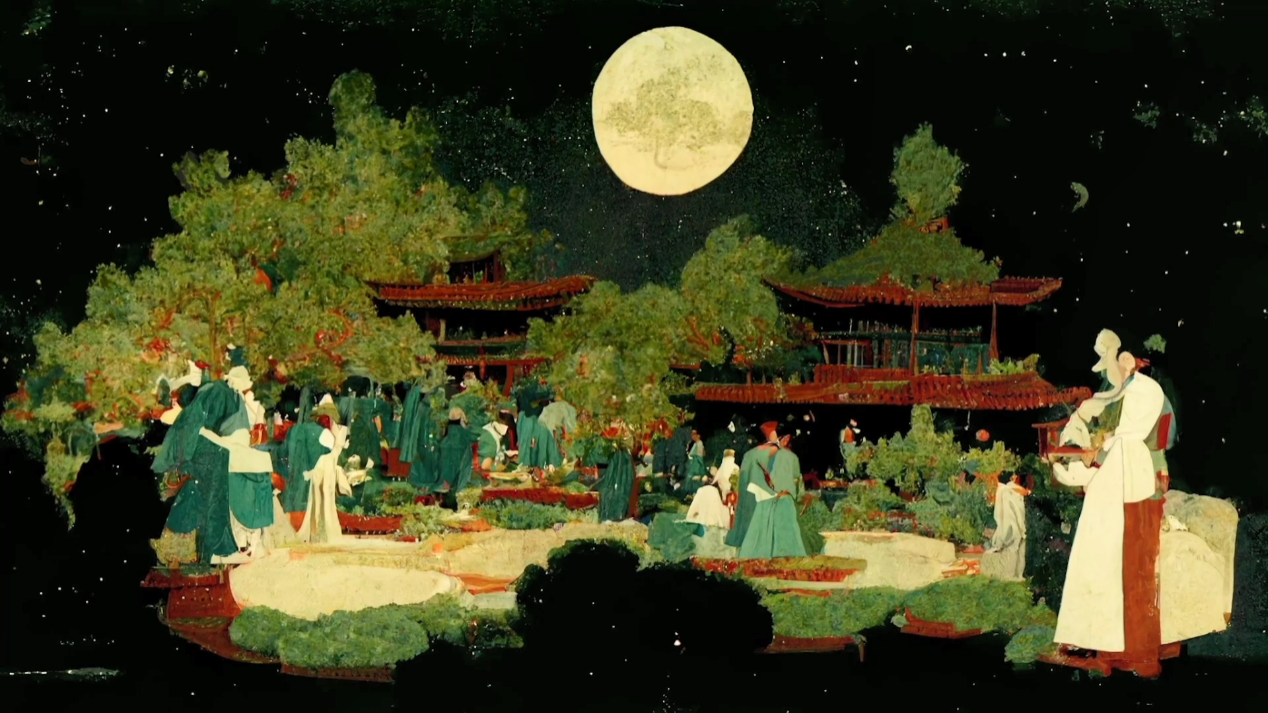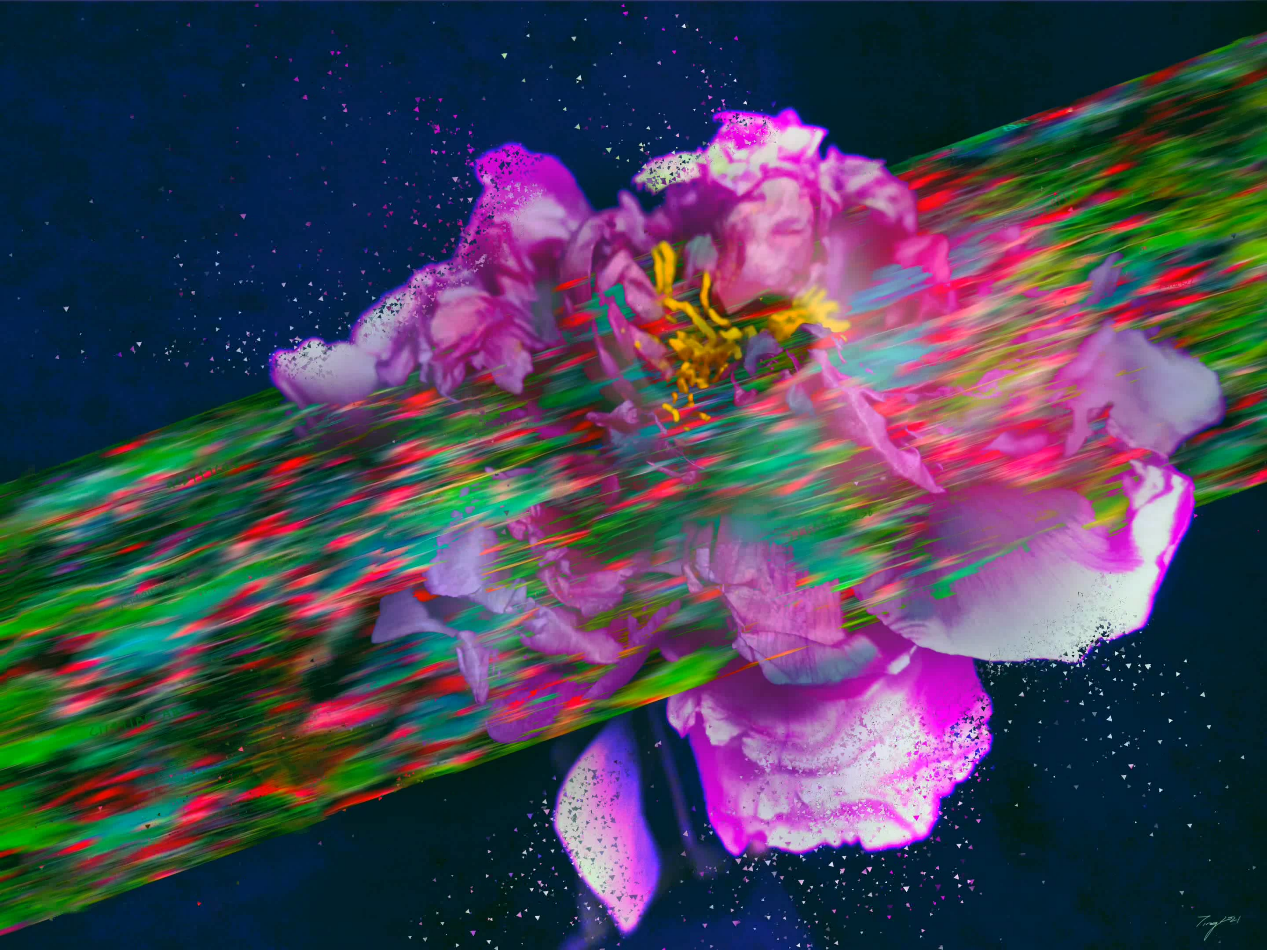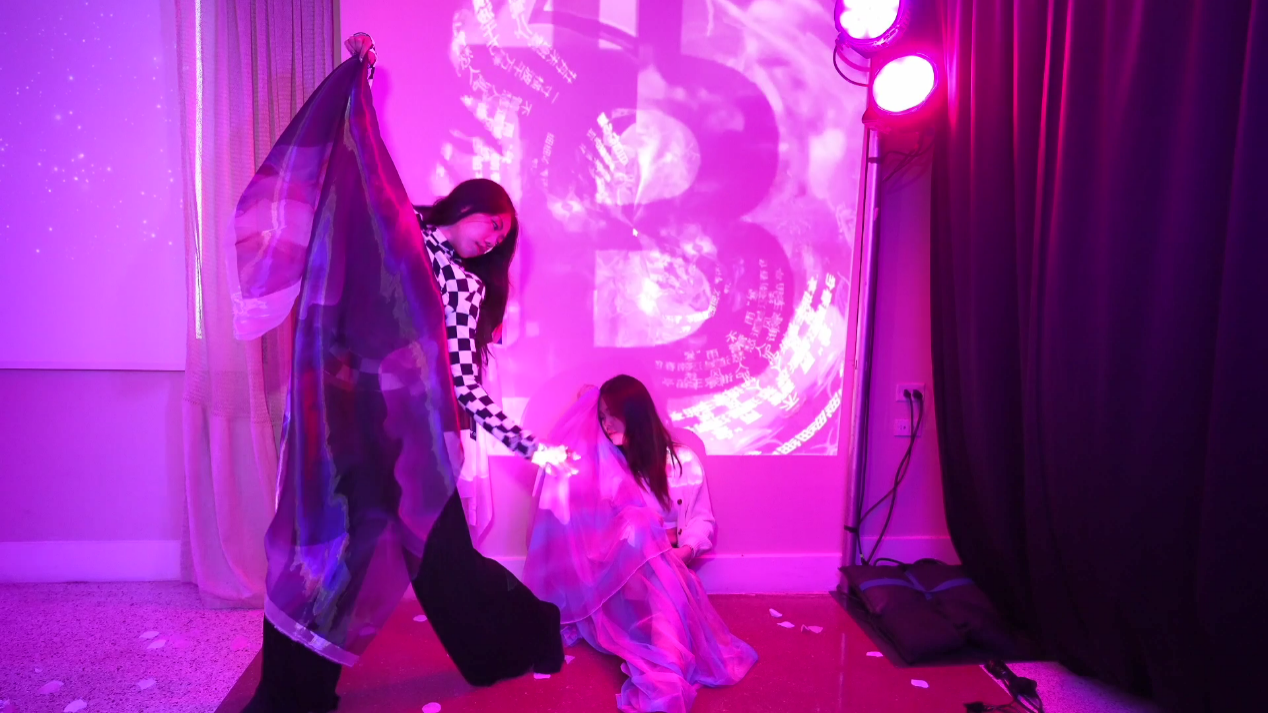08:52

Over the past few years, the non-fungible token – or NFT – boom has propelled a string of international digital artists to fame and fortune. Now, China has its own rising NFT artist: Song Ting.
By combining artificial intelligence technology with traditional art, poetry and drama, she creates conceptual artwork that reimagines traditional Chinese culture.
"For me, coding language and Chinese, especially in traditional Chinese literature, are two kinds of language that have shaped me from soul to body," said Song.
One of her popular works is a psychedelic digital recreation of a Buddha statue from the Mogao Grottoes, a 1,000-year-old cultural site in northwest China's Gansu Province. By using software including Adobe, Blender and Unity, she makes the statue dance.

"The Peony Pavilion: Information Technology Penetrates 'Me'" by Song Ting. /Song Ting
"The Peony Pavilion: Information Technology Penetrates 'Me'" by Song Ting. /Song Ting
She also created the first digital art piece to be auctioned by China Guardian. Called "The Peony Pavilion: Information Technology Penetrates 'Me'" and inspired by the classic Chinese play "The Peony Pavilion," it was sold by the auction house for 667,000 yuan, or $105,000, in 2021.
"The colorful part of the painting is made of words I collected from different volunteers last year," she says. "I asked them, What is love in your heart? What is confusion? And what is hope?' They handed me their answers. Then I used an encryption algorithm to encrypt their Chinese sentences into different digital formats, which I embedded in the painting."
"As I see it, if we do have a metaverse in the future, the metaverse should be formed around real connections between human beings," Song said. "All the core, all the soul, and important things in human and AI collaboration art are human. That's something I want to deliver."
Song has been working on blockchain art for years. She first became interested in blockchain when she was a student at Tsinghua University in 2015.
Soon after, she began creating art inspired by the Chinese classics she read as a child.
In 2020, she held her individual exhibition, "The Re-cyborg Cathedral and Bazaar," in Beijing.
It was the first-ever blockchain-based AI art exhibition featuring artwork created by algorithms and humans to be staged in China.

A still from immersive play "Peony Dream" directed by Song Ting. /Song Ting
A still from immersive play "Peony Dream" directed by Song Ting. /Song Ting
Her recent work is the NFT immersive play, where she continues to explore the story of "The Peony Pavilion."
And her short film "In a Peony's Dream" has won several international awards, including the Best Animation award at the Tokyo Film Awards.
"When I was a little girl, I read the book "The Peony Pavilion." One sentence blew my mind: 'Why does Heaven give us a brilliant day and dazzling sight? Whose house could boast of a sweeter delight?' It dawned on me how beautiful it is. I think its strong power transcends time and space and cultural boundaries."
Song has even collaborated with AI to create music. She performed her AI-generated song "Mina" at the opening of ETH Vietnam – the largest blockchain coding competition in November.
However, she never stops exploring. Next, the artist plans to do quantum art.